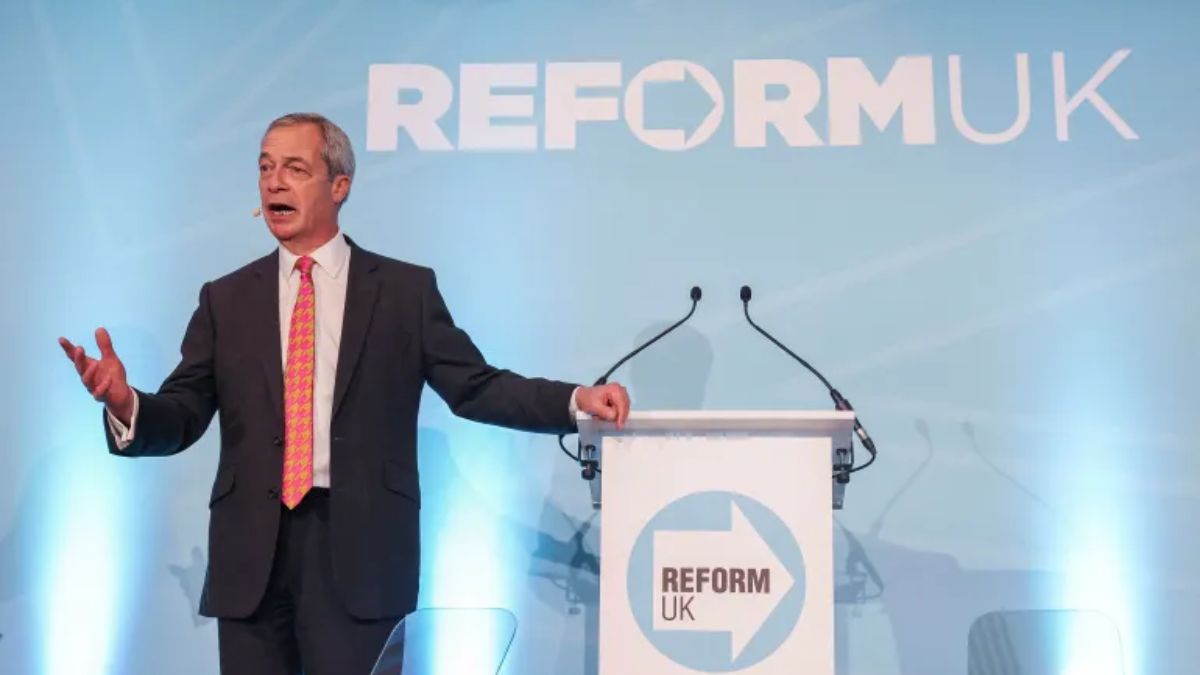After Italy, France, and Germany, the far-right is set to make major inroads in another European country: United Kingdom.
The Reform UK led by Nigel Farage is set to make gains in Wales and the extent is clear in the Welsh city of Port Talbot that the Labour Party has held for the past 103 years. But the seat is at the risk of being lost to Reform in the next year’s Welsh parliamentary elections.
The Reform has already made ripples in British politics. Last year, it helped the Labour score a landslide victory by eating into the votes of the Conservative Party. Earlier this month, a survey found that the Reform was the most popular party in the UK for the first time — ahead of even the ruling Labour.
The reasons for the rise of far-right in the bastion of Labour in Wales are similar to the United States and Germany: the loss of manufacturing jobs, industries moving overseas, anger with the mainstream parties, and disgruntlement with immigration.
Job cuts, anger over ‘green’ initiatives driving people to Reform
Around 2,500 steelwork jobs have been lost in Port Talbot as two blast furnacse of the Tata’s plant have been shut. A new furnace is being built that will start production in the coming years but those who have lost jobs feel betrayed. The loss of jobs in the steelworks has a spiralling effect on the town’s economy as cafes, shops, contractors catering to workers and the broader industry are also being affected.
One key reason for the popularity of Reform UK is the party’s opposition to anti-net zero commitments and anti-immigration credentials — both associated with job cuts. While loss of jobs to either overseas moves or immigrants providing cheap labour is a common irritant among countries, people are also miffed that a move to decarbonise manufacturing, such as steelworks, is also costing jobs — the Tata plant is closed until the new furnace comes up as older blast furnaces are being replaced by an electric arc furnace.
ALSO READ: As Germany goes to vote, far-right AfD puts leftists & moderates on notice
Julian Thomas, 56, who was associated with the steelworks for 22 years, is among those who have lost jobs.
Impact Shorts
More Shorts“I genuinely believed they would help to keep this works open…I can’t vote for people I think are doing nothing for you,” Thomas told Politico.
After interviewing dozens of political operatives, Politico’s Dan Bloom concluded that “the overall impression was clear: a right-wing party [Reform] in breezy ascendancy — and a center-left ruling party [Labour] riven over what to do about it”.
Jordan Griffiths, 24, told Politico that he was a welder fabricator contractor in Port Talbot where his father had also worked. After four years, his job has been shuttered and he is looking to find a job at a power station 100 miles away. The cases of Thomas and Griffiths are not unique. Bloom noted that the Labour’s hold over its bastion for a century is no longer assured as a sense of betrayal has set in.
“Labour has held this seat for 103 years, as long as it has been Wales’ largest party. But polls predict a seismic upset in next year’s elections to the Welsh parliament, the Senedd — a test bed for the U.K.’s next general election in 2029. Some of those caught in deindustrialisation are eyeing Reform, with its anti-net zero and anti-immigration credentials — even if, like Thomas, they aren’t yet convinced Farage is the answer,” noted Bloom.
Reform UK has already made waves in UK politics
Even though Farage’s Reform UK just has five MPs, it has already made waves in British politics.
For one, it was Reform that made way for last year's Labour's landslide victory by eating into Conservative’s vote share by dividing right-leaning voters.
Even though the Labour won a landslide victory with 411 MPs against Conservatives’ 121, the margin of victory was the slimmest in post-war era.
Between 2019 when Labour suffered the worst defeat in decades with 262 seats and 2024 when Labour won 411 seats, the margin of Labour’s vote share was just 1.5 per cent.
ALSO READ: After Germany, Elon Musk turns to UK to prop far-right Nigel Farage against Starmer
In an analysis in The Spectator, journalist Fraser Nelson noted that at least 145 Conservative MPs lost just because of Reform ate into Conservatives’ voters share. This is how Farage made way for Labour victory.
“There’s just Farage – who enters parliament with just four other MPs. Reform UK’s main effect in this election has been to split the conservative vote and, in so doing, open up more constituencies to the Labour and the Lib Dems. Jacob Rees-Mogg was the highest profile of at least 145 Tories who would have won had Reform voters gone to the Conservatives,” noted Fraser.
Earlier this month, a YouGov survey found that 25 per cent of voters favoured Reform UK compared to the ruling Labour Party that was favoured by 24 per cent voters.


)

)
)
)
)
)
)
)
)



